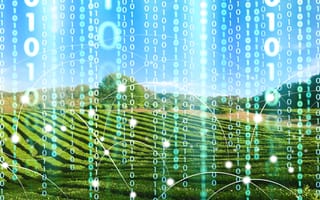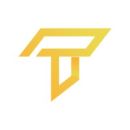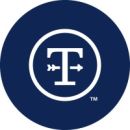There is little margin for error in the food industry. One mishap in food supply or preparation can be costly, for both health and finances.
Blockchain is being championed as a solution to prevent foodborne illnesses or lost product orders. Outbreaks and delivery bottlenecks can occur when traditional food supply methods are inefficient or not documented properly, making it difficult to trace the origin of contamination or shipment errors. FDA Commissioner Scott Gottlieb said food suppliers should experiment with blockchain because it could link such mishaps “to a specific grower, specific farm and a specific distributor.”
Here are 10 companies using blockchain technology to change the way we treat and receive our food.
Companies Using Blockchain for Food
- Nestlé
- Walmart
- TagOne
- IBM
- Tyson Foods
Blockchain for Food Traceability
The transparent and immutable nature of blockchain makes it a useful tracking tool throughout the supply chain lifecycle. As a food product meets different checkpoints, its data can be documented and updated on blockchain ledgers, so users can view every step of the product’s journey. If a shipment is missing or appears contaminated, distributors and retailers may be able to pinpoint its last handlers, locations and times of documentation with ease.
These companies are helping increase traceability and transparency across the food supply chain with blockchain technology.
Location: Arlington, Virginia
Since 2017, Nestlé has utilized the IBM Food Trust blockchain ledger to help users trace the origin of products like its Mousline purée and Zoégas coffee brands. In collaboration with the Rainforest Alliance, Nestlé is able to track farmer and harvest information for cocoa beans used in Zoégas coffee, all to provide transparency for consumers plus increase sustainability for farmers and natural resources.
Location: Bentonville, Arkansas
Walmart and IBM partner to maintain the retailer’s Food Traceability Initiative, created in 2018. For the initiative, Walmart uses the Hyperledger Fabric blockchain platform, which lets officials trace the lifespan of their products to ensure food safety and reduce waste. The initial ledger experiments found promising benefits, most notably the ability to track the origin of U.S. perishables, such as mangoes, within 2.2 seconds. With the help of IBM, Walmart has been able to trace approximately 1,500 items as of 2022.
Location: Boston, Massachusetts
Kezzler’s cloud-based traceability platform enables parties to view product information along each stage of the supply chain process, and is able to be integrated into existing blockchain ledger and database systems. The core platform tracks not only logistics data, but also consumer engagement, key analytics, product UID details and related activations. Kezzler is partnered with various companies to bring the latest in tech to its solutions, with some being Accenture and Microsoft.
Location: San Francisco, California
The ripe.io blockchain ecosystem provides transparency during the food journey using a variety of tools, including supply chain tracking, secure data aggregation and business model digitization. With Ripe.io, farmers leverage blockchain-backed IoT devices and machine learning to automate farming processes, while distributors track food in real-time and consumers receive verified information about their food’s origin.
Location: Princeton, New Jersey
Utilizing blockchain and AI with cloud computing, TagOne is seeking to create a more responsible and connected global food and natural product supply chain. The company’s combined technologies are able to identify data tempering, provide clear audit trails and track global natural supply imbalances. TagOne has been in use by a few U.S. businesses to provide transparency for their honey, herb and CBD products.
Location: Seattle, Washington
Transparent Path’s platform displays the farm-to-distributor journey of food in real-time. The company’s chain of custody software helps restaurants and brands manage food safety, cold chain compliance and shipment losses. The company’s framework combines sensor technology, AI and blockchain apps to give food vendors traceability for their perishable products.
Location: Bloomfield Hills, Michigan
Wholechain is working to provide traceability and bridge fragments within food supply chains. Situated on the blockchain, the company’s platform helps producers and suppliers digitize product information, track food quality data and coordinate between parties during the delivery process. Wholechain’s blockchain technology meets both GS1 and GDST standards, plus offers permission customization and open-source options.
Blockchain for Food Supply Chain Management
Supply chains, especially for food, are composed of multiple moving parts. Managing food regulations, compliance and deliveries can be an intricate and time-consuming process, but blockchain aims to streamline it all through automation and smart contracts.
With smart contracts, tasks like transactions and shipments can be automatically confirmed and paid out once contract agreements are met. This can save employees from manually checking food quality, documenting product data or sending supplier payments.
Companies like the ones below are using blockchain to enhance and speed up food supply chain processes.
Location: Armonk, New York
IBM’s supply chain intelligence suite, including IBM Food Trust, employs blockchain to help businesses manage food supply chain tasks and build greater transparency. IBM Food Trust in particular can monitor product shelf life, oversee food waste and ensure regulatory compliance all on one database. The technology can even create smart contracts based on organization data, so supply chain agreements may be automatically executed in the case of specified food products, events or transactions.
Location: Springdale, Arkansas
Tyson Foods, the parent company of brand names like Hillshire Farm and Jimmy Dean, has used FoodLogiQ’s Connect blockchain platform for supplier management needs since 2018. By leveraging blockchain, Tyson Foods can centralize supplier documentation, facilitate product evaluations and automate food recall actions. Tyson Foods determined the platform’s efficiencies will allow the company to “realize a return on investment.”
Location: Los Angeles, California
Mojix creates chain management software to increase automation, reduce waste and ensure product quality in the food and retail industries. By using blockchain technology, the company’s software can automate food safety compliance, expiration date tracking and inventory management. Mojix currently works in collaboration with food companies such as McDonald’s and Wendy’s.













